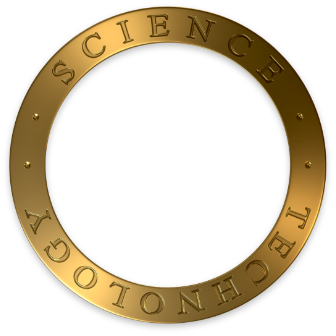
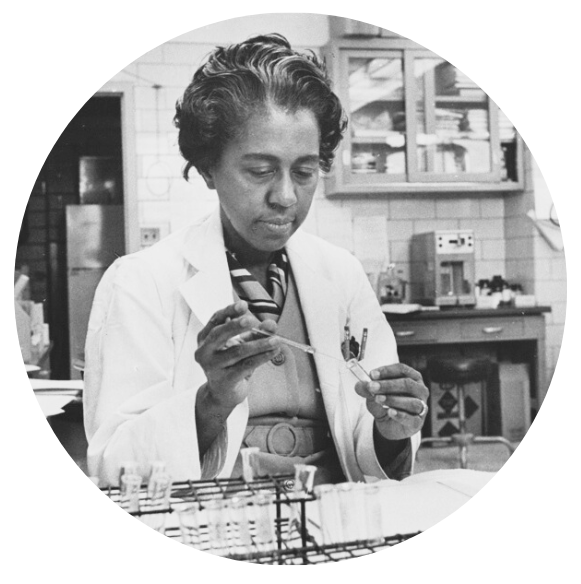
Clevernomics for Geeks & Nerds
Scientists * Engineers * Doctors * Researchers Inventors * Programmers * Lone Wolves
Revolutionizing the Brainstorming Process
in Business, Science, and Art


Scientists * Engineers * Doctors * Researchers Inventors * Programmers * Lone Wolves


Entrepreneurs * Leaders * Financiers * Lawyers Visionaries * Royalty * Cheeky Monkeys
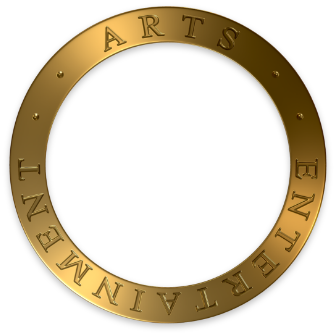
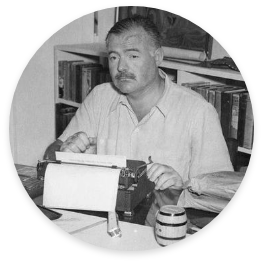
Writers * Artists * Directors * Advertisers Entertainers * Publishers * Love Birds


Writers * Artists * Directors * Advertisers Entertainers * Publishers * Love Birds
Scene #1 - "The problem with brilliant ideas is that they are exceedingly rare. They take too long to happen, and when they finally do, after months of percolating, it’s usually because of some random event that just happened to trigger the idea, or somebody had a daydream, or accidently left a half-eaten liverwurst sandwich out on a petri dish in the lab over the weekend. Seriously; that's pretty much how penicillin was discovered."
Scene #2 - "Even the world's most talented innovators struggle needlessly to think up new ideas. Consider the case of Leo Szilard (suh LARD), pictured here with Einstein, who agonized for years over one of history’s most important problems."
.jpeg)
Scene #3 - "Back in the 1920’s, most scientists assumed the energy contained within the atom to be hopelessly unusable (the input required was greater than the output produced). Unbelievably, Einstein even told Szilard not to waste his time on it. But some of Szilard’s colleagues had ties to the Nazi party, and the fear that a coterie of clever fascists might find a way to exploit the atom would keep Szilard pondering the problem well into the 1930's."
Scene #4 - "Then in 1933, on the early morning of September 12, across from the British Museum in Bloomsbury, Leo Szilard was out for his morning "thinking stroll".
Scene #5 - "As he waited to cross the street, he turned his gaze to the distant traffic lights switching green to red in sequence from one end of Southampton Row to the other and thought to himself: What if we were to use a chain reaction?"
Scene #6 - "Years later, upon hearing of Szilard’s idea, Einstein is said to have remarked, “Why didn’t I think of that?"
THIS IMAGE IS UNDER CONSTRUCTION
Scene #7 - "But what if those traffic lights had failed to catch his eye that morning? What if, instead, a Nazi scientist, scheming the same problem, had caught sight of some children playing with dominoes on a Berlin sidewalk? Would any of us even be here today?"
Scene #8 - "As intriguing as it is to ponder such things, shouldn’t a world-class physicist have a method for generating ideas that doesn't depend on traffic lights, or kids with toys, or a filthy lab? Shouldn’t we?"
Scene #9 - "What if there was a professional, systematic way to innovate, that didn't take years or months, but generated brilliant ideas in hours or even minutes? And what if you could design this "creativity machine" to be universal, so that it could work as well for scientists as it would for advertising executives, or screenwriters, or precocious children even?"
Scene #10 - "As it happens, the blueprints to such a machine already exist, and they've been hiding in plain sight for the past three-hundred and fifty years."
THIS IMAGE IS UNDER CONSTRUCTION
Scene #11 - "Enter Clevernomics, a system designed for the mass-production of brilliant ideas on a global scale. It's based on an idea first proposed way back in 1666 by Gottfried Leibniz (LIBE nits), inventor of calculus, the computer, and a dozen other wonders we take for granted today.
Scene #12 - "Leibniz believed that there are no purely original ideas, because every idea is nothing more than a new twist on something that already exists. So in order to generate a new idea, all you have to do is apply any random twist in the form of a what-if question to any scenario you choose."
Scene #13 - "Until Leibniz came along, the assumption had always been that because the human mind is theoretically capable of thinking up an infinite number of ideas, then there must be an infinite number of twists required to produce those ideas. But Leibniz suspected that the number of fundamental concepts responsible for most brilliant ideas and inventions is a relatively finite number. (He died before he could prove it.)
Scene #14 - "But after having spent the past several years reverse-engineering thousands of history’s greatest ideas, having surmised from each idea the specific what-if question that was used to provoke it, Tom Heehler, the founder of Clevernomics, along with his research team at the G. Von Leibniz School of Innovation, tell us that the total number of Leibniz’s what-if questions required to produce virtually all possible ideas comes in at a mere 3,406. Remarkably, almost any creative idea, whether scientific ("Chain Reactionism" applied to a nucleus), artistic ("Unauthorizationism" applied to art - Banksy), or business related ("Anthropomorphism" applied to a dish sponge - Scrub Daddy), can be generated with a single "ism" contained within this collection."
THIS IMAGE IS UNDER CONSTRUCTION
Scene #15 - "...Once you know what these "isms" are, generating ideas is a simple matter of applying each “ism” in thirteen specific ways (13-dimensional thinking), to any subject of interest, until a new invention occurs. Had Clevernomics existed back in the 1920's, Leo Szilard would only have had to cycle through 72 what-if questions before arriving at CRe73 -"Chain-Reactionism." That’s about one day of work. Compare that with the years it took Szilard to stumble upon the same what-if question the old-fashioned way, and you begin to understand just how indispensable this new way of innovating really is."
Scene #16 - "From the flint knife to the idea for GPS, from Snuggies to the aha-moment for CRISPR gene editing, all of history’s best-known ideas are broken down into their fundamental parts and used as fuel to power the Andromeda cEngine. Your quest, after completing this three-week crash course in creativity, will be to use Andromeda throughout your career to radically improve what needs improving, create what needs to be created, and give the world something it's never seen before."
Scene #17 - "Because if you don't, eventually someone else will. And you will come to know the answer to Albert Einstein's most improbable question:
Why didn't I think of that?
.jpeg)
THIS IMAGE IS UNDER CONSTRUCTION
THIS IMAGE IS UNDER CONSTRUCTION
THIS IMAGE IS UNDER CONSTRUCTION
While the cEngine may appear to be incredibly simple, it's not. It takes about three weeks to learn how to use it.
But fear not, young grasshopper: We'll teach you to become a clever fox, in a way that you're not accustomed to being taught; from the icy, snow-covered surface of the bright side of the moon - Neptune's moon, Triton, that is.
Until the Katherine Johnson School for Gifted Children opens in 2025, kids ages 10 and above are eligible to enroll in this Clevernomics course. Each age group has a dedicated chatroom, and kids must be supervised by their parents while chatting.
Chatting is voluntary. You're not our first creative introvert, and you won't be our last.
Clevernomics is the first creativity course offered by the G. Von Leibniz School of Innovation at Heehler Institute. Heehler is a pro-democracy, private academic institution. When the school opens in 2024, all prospective students will be vetted during registration with a 5-question survey. Candidates who harbor a contempt for democracy, or claim to believe in baseless conspiracy theories, whether left wing, right wing, or any wing, are prohibited from enrolling. Those who are later discovered in a chat will be banned from the chat room and disenrolled from the school.
It only takes a few minutes of using the cEngine to realize that it works exceedingly well, in the same way that doing algebra confirms that algebra works exceedingly well. No studies or scientific claims are needed for either. (The demonstration video, "The cEngine in Action," is slated for release in November of 2023.)
Whether you’re using the Heehler Institute’s open-source version of AI in the Auxiliary screen of the cEngine, or your own AI account with Google or Open AI, expect artificial intelligence to be available free of charge to all students and graduates who have obtained their GVL creative license.
Heehler Institute is comprised of two online cyber-learning brands; the G. Von Leibniz School of Innovation (primarily for adults - where Clevernomics is taught), and the Katherine Johnson School for Gifted Children. The purpose of the Katherine Johnson School is to turn every-day kids into creatively gifted kids by incorporating the Andromeda cEngine into their curriculum (inventive learning).
For example, where a conventional school would teach a child that "Columbus discovered America in 1492," KJ students use the cEngine to invent a way for a commoner like Columbus to gain an audience with a queen, invent a way to navigate a sea, invent a way to prevent the onset of scurvy, and invent a way to gain the cooperation of the human beings Columbus "discovered," (as opposed to what he actually did, which was to self-identify as a sea pirate, and terrorize everyone into submission).
In other words, Katherine Johnson creates gifted kids; it doesn't cherry-pick them. Any school can cherry-pick the brightest of kids, and call itself a gifted program. The true measure of a school's giftedness lies in its ability to turn regular kids into exceptional adults.
The school further motivates kids by teaching within the context of what they want to be when they grow up (aspirational learning). For example, a child who wants to be an astronaut, enrolled in the "Dorothy Vaughan Space & Rocket Science School" would never be presented with a math problem involving the speed and direction of two trains. Instead, the problem is gamified as an asteroid hurtling towards the student on Neptune's moon, Triton - in real time. The only way the child survives is by solving the math problem before impact. So the school tricks kids into learning in the same way a parent might hide carrots in a child's supper. By teaching in this way (cyber-learning), kids stay engaged and excited to learn new things, because as far as they're concerned, they're training to be astronauts.
So instead of asking about a child's homework for the day, a parent would inquire into their child's "astronaut training."
The first two cyberlearning schools to open, the "Dorothy Vaughan Space & Rocket Science School," and the "Patricia O'Connor School of Veterinary Medicine," will begin accepting kids 10 and above in the fall of 2025. Kids interested in enrolling will be able to download an age-appropriate study manual, or receive a physical copy in the mail for a nominal fee. Acceptance is limited to only those candidates who achieve a 100% grade on the test relating to the material covered in the manual. Any child who fails to reach the 100% threshold will be given as many chances as necessary to pass the test (that's the proper way to grade a child, as opposed to the conventional way - which is absurd). Once a child passes, they will receive an acceptance letter sent certified, signature required. The kids think it's a big deal but we know it's just a letter.
The cEngine Pro focuses on specific professions, and so it excludes everything else under the sun - which is a lot. We want our graduates to have a well-rounded creative education, and we want them to master the fundamentals of concept-cycling before they begin to specialize.
$75.00 - which is already included in the school tuition. Expect your coursepack to arrive in a wooden crate roughly two weeks prior to class. You'll need a flat-head screwdriver to open the lid.
Please keep the 12" x 18" crate, so that the entire delivery and packaging process remains eco-friendly.
If you make an unboxing video, let us know, and Beatriz Rivera will send you a 10-pack of Notes Ex Machina paper coffee cups.
If you make an unboxing video of the coffee cups too, then we'll try to find something else to send to your over-achieving self.
Crate Inventory:
1 course textbook
1 two-pack of Notes Ex Machina (the non-replica version)
1 defamiliarized world map
1 new venture contract
2 enamel aphorism signs (2"x5")
1 ceremonial study candle
1 cEngine owner's manual
1 school handbook
GVL is responsible for all costs associated with any New Venture project. When you opt in to the program, you forego your right to develop or patent your idea for a period of three years (in exchange for 10% of all future profits generated).
GVL retains the lion's share of any future profits (90%), because the school assumes all of the financial risk, as well as any possible liability associated with the product or service being developed.
Revenue generated by the New Venture Initiative will be used to subsidize construction of "Steelhenge," the new campus situated on a 1,000-acre wild-horse sanctuary outside Missoula, Montana. The design firm of Sporano & Mooney Architecture has been chosen to command the project, which will consist of several metallic structures built into the base of a 900-foot hill, eventually progressing upward toward the summit.
Each year, the Board of Trustees will invite three alumni to live and work on campus - free of any financial obligations. The three "Steelhenge Prizes" will be awarded on the fall equinox of each year, and run from January to December. Prize winners (creatives-in-residence) are expected to use the cEngine to produce a minimum of three patented inventions or artifacts, and entrust them with the school upon completion of their residencies.
The campus will also offer free incubator space to a select group of blockchain start-ups, while serving as the physical headquarters for the upcoming blockchain think tank, the "Blockchain Institute of Montana."
Cars are prohibited on campus - in deference to the horses - and so a hidden car park will lie nestled under a canopy of juniper and pine within walking distance to the site. Construction of the sustainable campus is slated for the spring of 2025.
Sporano & Mooney have won many awards.
Harriet Tubman escaped her slave owner, became a “conductor” on the underground railroad (she “never lost a passenger”), and served as an armed scout and spy for the Union army, liberating hundreds of people and dozens of families. An electron will change its behavior if it’s observed by a conscious being. When the U.S. offered to evacuate the president of Ukraine as Russia attacked, Volodymyr Zelenskyy replied, "I need ammo, not a ride."
You've got enough inspiration. It’s time to get to work.
Absolutely!
It's actually not his idea. Gottfried von Leibniz is the true inventor. You can find out more here.
Yes. The fuel required for the engine to operate is kept in the fuel tank - in the form of 3,604 thought-molecules. Each thought-molecule is individually forced through a special tube to be "aerosolized" into the form of a what-if question. Your mind is the piston that poses the what-if question to any chosen scenario in 13 different ways. The process is repeated again and again, just like any other engine.
So in a very real way, Andromeda is ultimately you - or as we like to put it, "The Machine is You."
Notes Ex Machina is a creativity experiment designed to answer the question: What would happen if the cEngine were used in real-time, and in real-world conditions, to dramatically enhance a pre-exiting product or service?
When we chose the pocket notebook industry as our guinea pig - an industry about which we know very little - it begged the question: Could the cEngine produce a product that would compete with, and also improve upon iconic brands like Field Notes, Leuchtturm1917, and Moleskine?
We think our notebooks will do precisely that, and after the initial limited-edition prints are made available to the public this fall, we'll continue issuing new quarterly editions thereafter.
Your first Notes Ex Machina (the original) is embossed with your name and your chosen field of interest, whether it be a Certificate of Insight in Business Innovation, Artistic Innovation, Scientific Innovation, or Leadership and Innovation. You will not be charged for this original version. It comes with your coursepack two weeks prior to the first day of class.
Our advice is to safeguard the original. If you use the cEngine routinely (and you should) your original Notes Ex Machina may be worth a tidy sum one day.
If you do in fact lose the original, GVL will offer a $100 reward for its safe return.
cEngine access is renewed every four years, on the first day of the Winter Olympics (makes it easy to remember). The four-year renewal fee is set at $25 to cover the cost of maintenance and blockchain upgrades. "Idea Tree" contributors pay no fee when they renew their registration.
Displaying on LinkedIn will require a GVL Creative License number issued upon certification. Instructions can be found in the cEngine owner's manual.
While mirror-writing is part of the curriculum, only "Letter of Merit" candidates are required to become proficient mirror-writers.
Creating new things becomes easier after you've disconnected yourself from your usual place, and from your usual time. (There's a logic to the madness of Clevernomics.)
Not to mention that Triton is the best place in the solar system to get some peace and quiet for studying.
One of the Leibnizian concepts we applied to it was Gga553 (Giganticism), and people seem to like it gigantic - gives it sort of a 2001 Space Odyssey vibe.
And yes, you heard right; we used the cEngine on the cEngine. We do it all the time when we want to make improvements.
Leibnizian concepts are identical to ordinary concepts, with two key exceptions: Leibnizian concepts include compounds (special combinations of concepts) as well as formulas (concepts and compounds applied to a specific subject in one of 13 specific ways).
We like to think of Leibnizian concepts as "thought-molecules."
Without these special thought-molecules, it would take a human being years to do what the cEngine can do in mere hours or even minutes.
The course is comprised of six lectures, two per week, each requiring an hour of your time. Each lecture requires you, the student, to discover things that the lecturer does not already know, and make those things known to the entire pack. You’ll do this by applying the cEngine to aspects of your own life or career field. These insights will be cataloged into the cEngine database for future packs to see and study. Your name will be recorded as the author of each entry you submit – although you do have the option to remain anonymous.
After the first lecture, you’ll be given access to the learning version of the cEngine, where you’ll be presented with training scenarios that require you to cycle through a variety of Leibnizian concepts to solve and innovate each scenario. Your training scenarios will relate to your chosen certificate field. Expect to devote roughly 90 minutes of cEngine practice time for each of the six lectures. The final lecture will introduce the many initiatives, projects, and programs available to you upon successful completion of the GVL licensing test. A grade of 100 % is required for certification, and students may retake missed test scenarios as many times as necessary to achieve a perfect score. The test should take no more than 90 minutes to complete.
You will receive your “certificate of insight” via snail mail shortly thereafter, along with your creative license, graduate endowment stamps, and any special access codes relating to your chosen post-graduate programs.
You’ll also be given a choice between the conventional version of your certificate, and the portal version that comes with its own circular brass frame (modeled after the actual portals on the cEngine). If you opt for the conventional rectangular certificate, we’re going to assume that you’re being ironic.
After you receive your creative license, it is recommended that you avail yourself of as many post-graduate programs (diabolical schemes) as possible. Most are funded by your original tuition, and so they are available at no further cost.
The goddess Andromeda was forsaken to history in much the same way as was the cEngine in 1666. Both would eventually be rescued, and both would go on to rule the universe.
That, plus it sounds really awesome and a little dangerous even - which it is.
There's never been a shortage of anti-creatives in the world. In fact, most people have a conscious or subconscious aversion to creativity - because real creativity requires one to embrace uncertainty and risk.

Let's say that you happen to be a writer, and you'd like to create an aphorism to complement whatever it is you're writing about. Instead of cycling through all 3,406 Leibnizian concepts , you could save a lot of time by only cycling through the "Aphorism Code" - the subset of roughly 400 formulas and compounds that lend themselves to the production of aphorisms.
Or, if you were an advertising executive looking to generate brilliant ads, you could use the "Ad Pro" version of the cEngine to narrow your cycling activity down to the 322 that make up the "Advertising Code."
But here's the problem: The Pro versions have limitations. What you gain in speed, you lose in thoroughness. So while the Pro versions will have you creating ideas and inventions quickly, you'll miss out on all the other ideas hiding within the remaining 3,000 or so concepts. What's more, it is within this "hinterland" of neglected concepts that the very best of ideas and inventions can often be found.
So you need to spend some time playing around with the entire database of concepts before you begin to specialize. Only then will you begin to see and appreciate the connective tissue linking art, science, and business. Only then will you come to realize that all three of these disparate fields are not disparate at all, but manifestations of the same creative things.
For these reasons, access to the Pro version is restricted to alumni with six months of cEngine experience.
But when you are ready, there'll be no charge for access to the cEngine Pro. We're starting off with nine varieties, and we expect to introduce six new varieties per year for the next several years.

Whether you're in search of a thought experiment or a physical experiment, the Ex Pro will get you there in record time. Fun fact: The Michelson-Morley experiment and the LIGO gravity wave detector were borne of the very same Leibnizian concept, "CPP242" (Contrast Perpendicular to Parallel) roughly 80 years apart - because thought-molecules are timeless...
All of the concepts responsible for every season of Shark Tank can be found in the Product & Service Code, not to mention the compounds and formulas responsible for over 500 other successful startup ideas.
"I have not failed, but found 10,000 ways not to make a lightbulb."
This famous quote is a play on a powerful concept known as "the process of elimination," and known in cEngine parlance as "EP1121" (Elimination of Possibilities).
You certainly don't need the cEngine to remind you of EP1121, but you will need it to remind you of the other 348 concepts that make up the Mechanical Engineering Code.
Ever wonder why the most successful bars and restaurants are always the most creative bars and restaurants? You shouldn't.
This is arguably the most important code of all, so we're devoting more of our energy here than anywhere else. Those medical research professionals and doctors who register as innovators are encouraged to contribute directly to the Med Pro database. Please contact Beatriz Rivera to apply for special access to editing and content creation - as well as a 50% reduction in tuition.
For access to this special code, alumni must provide documentation to prove their official involvement in U.S. governmental law enforcement and investigative agencies. Private citizens and private investigators are denied access to this particular version of the cEngine.

The purpose of "The New Venture Initiative" is to help those innovators and alumni who haven't the time, resources, nor the expertise to get their best ideas off the ground and flying steady.
The G. Von Leibniz School of Innovation earns 90% of any future profits generated, with the remaining 10% going to the idea's creator. This opportunity is offered to all innovators and alumni at no charge - except for our 90% take of course.
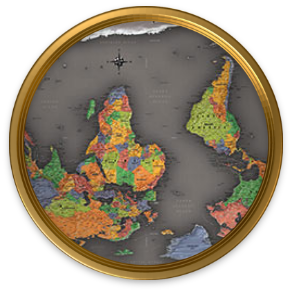
If you think this map is upside down, it's not your fault. You've been conditioned - every day of your life - to obey a necessary but harmful imaginary dictator: General Convention. But just 30 minutes of cycling per day will quiet your imaginary dictator by compelling you to think thoughts that you would never ordinarily think - you're simply not allowed to think in a conventional way, because if you do, the cEngine grinds to a halt. (Map 32.8" x 20.2")
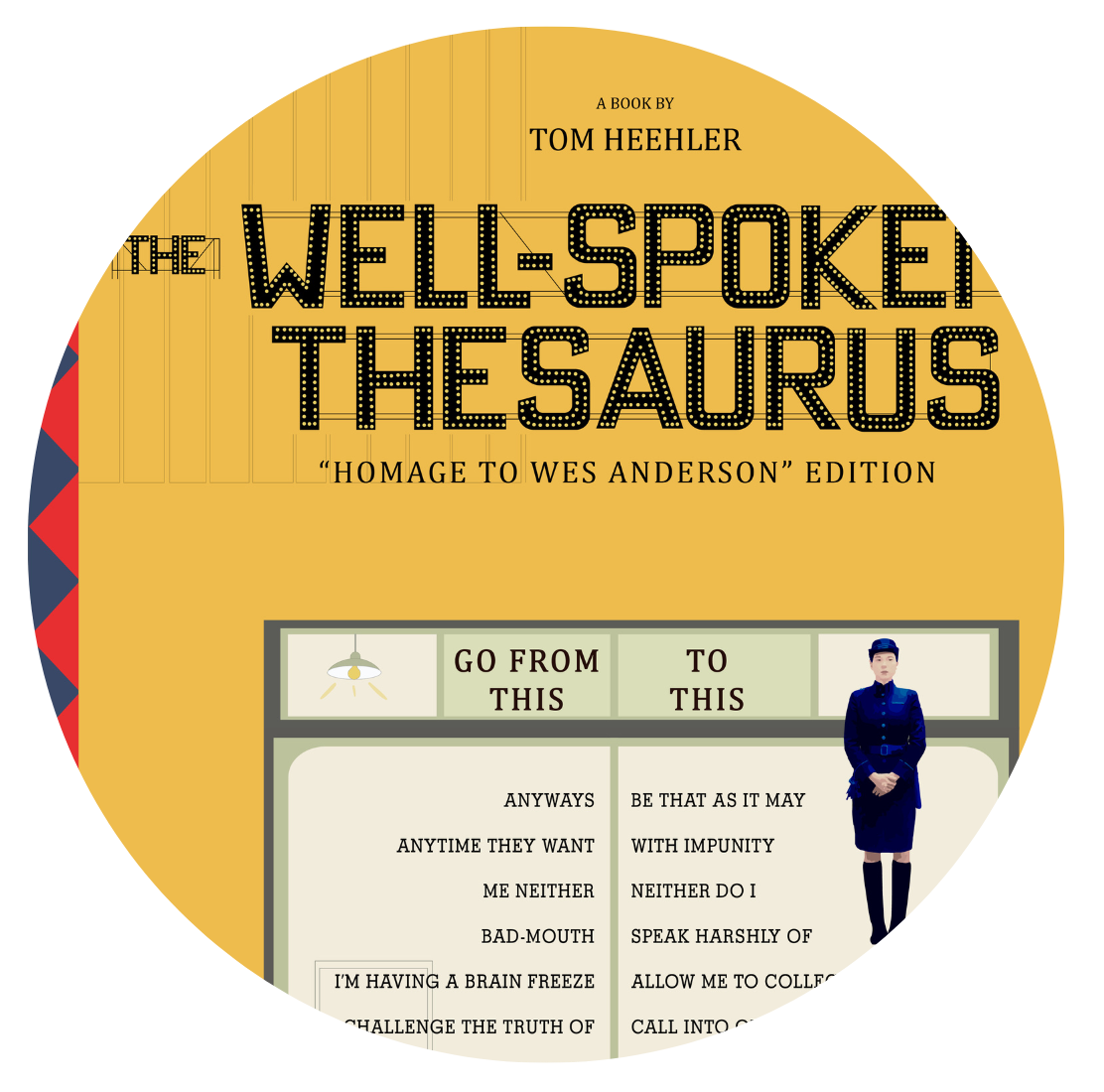
While a thesaurus may seem a curious choice for a textbook on creativity, any book can be deconstructed using Clevernomics. So not only will you learn how to do Clevernomics in a fun and unusual way, but you’ll also very likely acquire an appreciation for the beauty of words. (All students will receive the Wes Anderson Limited Edition Well-Spoken Thesaurus, which is only available to Clevernomics students.)
.png)
Get the details on the Foxfire Report, The Idea Tree, the New Venture Initiative, Innovator-Sourced Research and the Sierra Nevada Intensive Study Program.
Get your creative license and certification in just three weeks.
Reserve your place among the Gray Pack of 2024 today - and lock in your tuition rate.
FIND OUT MOREClevernomics is the first creativity course offered by the G. Von Leibniz School of Innovation at Heehler Institute. Heehler is a pro-democracy, private academic institution. When the school opens in 2024, all prospective innovators will be vetted during registration with a 5-question survey. Candidates who harbor a contempt for democracy, or claim to believe in baseless conspiracy theories, whether left wing, right wing, or any wing, are prohibited from enrolling. Those who are later discovered in a chat will be banned from the chat room and disenrolled from the school. Those who come to our attention on social media after certification will have their licenses revoked.

Candidates who identify or sympathize with one or more of the following categories, are disqualified for enrollment.
Global Warming Deniers
2020 Election Deniers
Holocaust Deniers
Vaccine Deniers
NASA Moonshot Deniers
Slavery Deniers (people who deny that slavery was the cause of the American Civil War, and pretend that the conflict was nothing more than a dispute over "states' rights")
Idea Deniers (people who ban books)

"The educated don't get that
way by memorizing facts;
they get that way by respecting them"
Registration for the Gray Pack begins October 1st, 2024, and ends November 1st, 2024.
Dec 1 Gray Pack
Jan 1 Arctic Pack
Feb 1 Darwin Pack
Mar 1 Sechuran Pack
Apr 1 Cape Pack
May 1 Bengal Pack
Jun 1 Swift Pack
Jul 1 Island Pack
Aug 1 Fennec Pack
Sep 1 Tibetan Pack
Oct 1 Corsac Pack
Nov 1 Red Pack
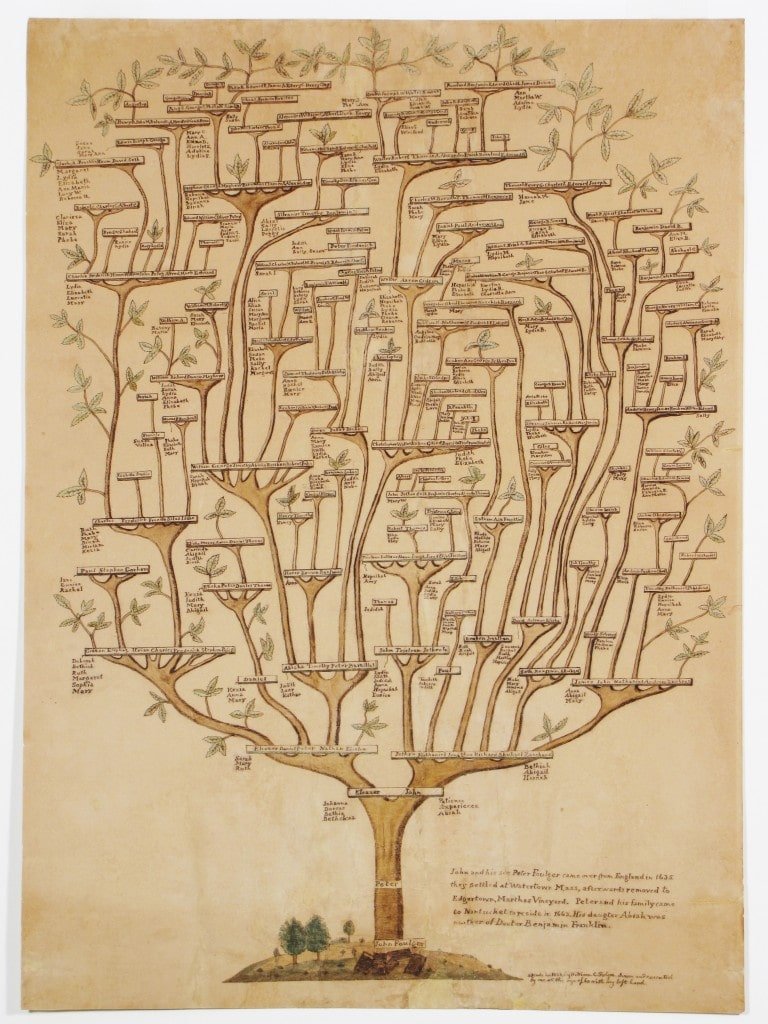
The process of evolution is not exclusive to living things. Ideas evolve too, and they have a family tree just like you do. Every brilliant idea can be traced back to the one before it, which can be traced back to the one before that. Constructing this "Idea Tree" is a big project, so the Leibniz School of Innovation has created an online virtual scaffolding where alumni can go to contribute to the project.
Alumni will also have opportunities to contribute to the Andromeda cEngine's database of 3,406 concepts. While this number is quite exhaustive, chances are good that dozens of concepts have yet to be discovered and cataloged. Only after many experts in a wide range of fields have had an opportunity to weigh in, can we be reasonably certain of the final number.
Contributions from innovators and alumni will be noted and recognized in official transcripts, as well as the project itself.

One of the first things you'll realize after you've taken this online creativity course, is that generating brilliant ideas is now the easiest part of the creative process. Anyone with access to the cEngine can do in hours what it used to take a creative genius months or even years to do. This means that for you, the most difficult aspect of the creative process is no longer the creation stage, but the "trial balloon" developmental stage.
That's why the Leibniz School has created The New Venture Initiative. Its mission is help those alumni who haven't the time, resources, nor the expertise to develop all of the ideas they generate using the cEngine. The school earns 90 percent of any future profits generated, with the remaining 10 percent going to the idea's creator.
The program is offered free of charge beginning in 2025, and details can be found in the cEngine Owner's Manual included in the coursepack. All new innovators receive their coursepack one week prior to the start of classes. Please contact the Admin Office to sign up for this and all other diabolical schemes offered to alumni.
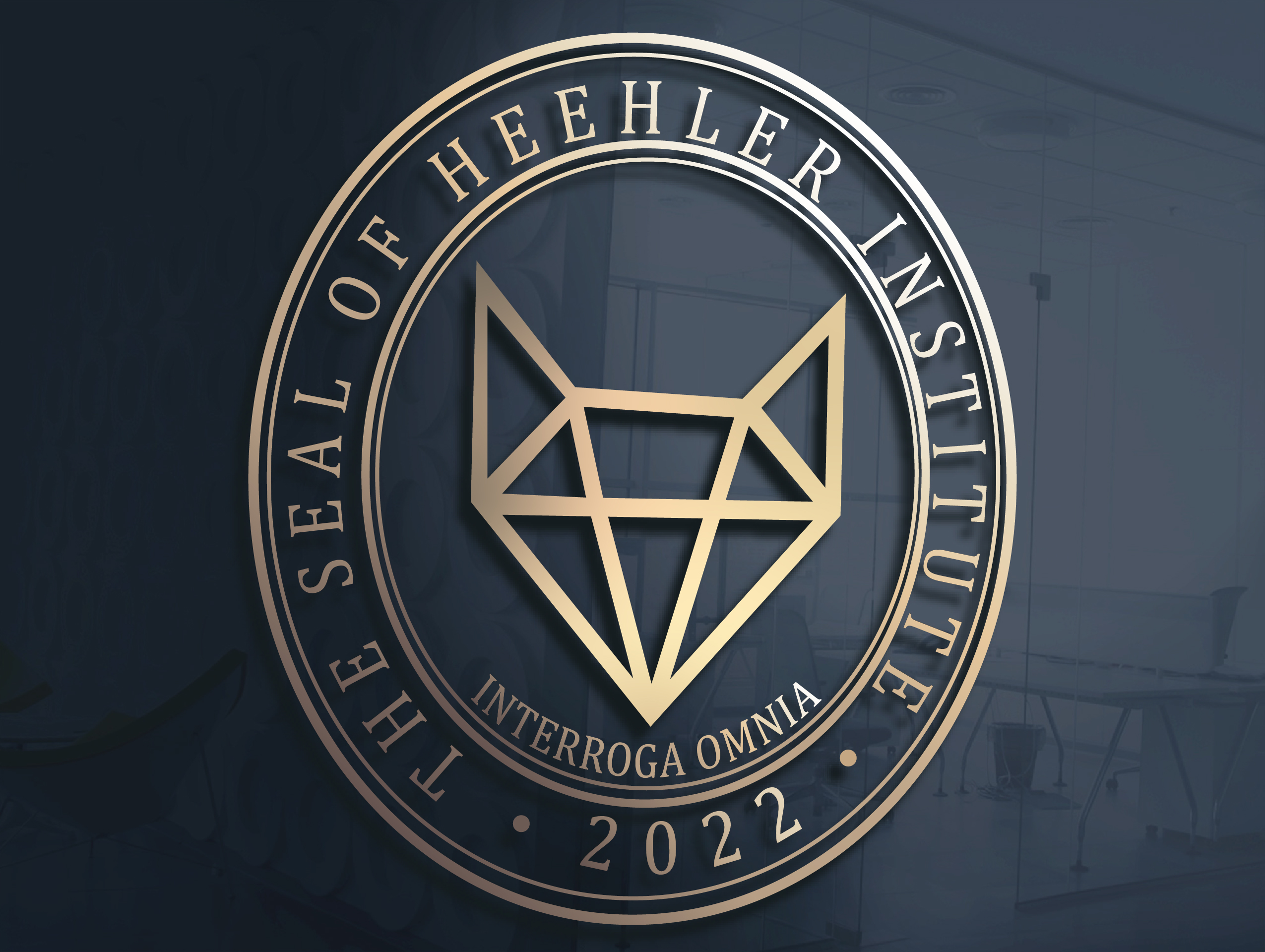
The Sierra Nevada program has been designed for those alumni who wish to work on their ideas collaboratively with Tom Heehler. The program is limited to "Letter of Merit" alumni, and is comprised of 24 one-hour sessions with Tom over the course of a year's time. The tuition is set at $30,000, and is secured by the same tuition-back guarantee as the regular 3-week crash course. The program is limited to five alumni per year.
Ideas and insights that relate directly to the innovator's interests will remain strictly confidential, however everything else that is discovered throughout the year will be shared with the entire innovator body and alumni.
Please contact Beatriz Rivera at admin@clevernomics.com for details on interest-free monthly payment plans available.
Let's say you happen to be the president of a company, and you want to discover every conceivable improvement that could possibly be made to one of your products or services (or your competitor's product or service). You could spend the next four to five months using the cEngine in your spare time to generate every brilliant idea possible, or you could pay $12,000 to the Leibniz School to have the report on your desk in just over a week's time.
GVL can do the job much faster and easier, because it breaks up the 200-hour job into ten bite-sized pieces, assigning each piece to specially trained alumni who work 20 hours each at 55 dollars per hour. (Only the best of the best Clevernomics innovators are selected for Foxfire duties after they've been licensed.)
And of course all Foxfire Reports are fully guaranteed and strictly proprietary to their owners.
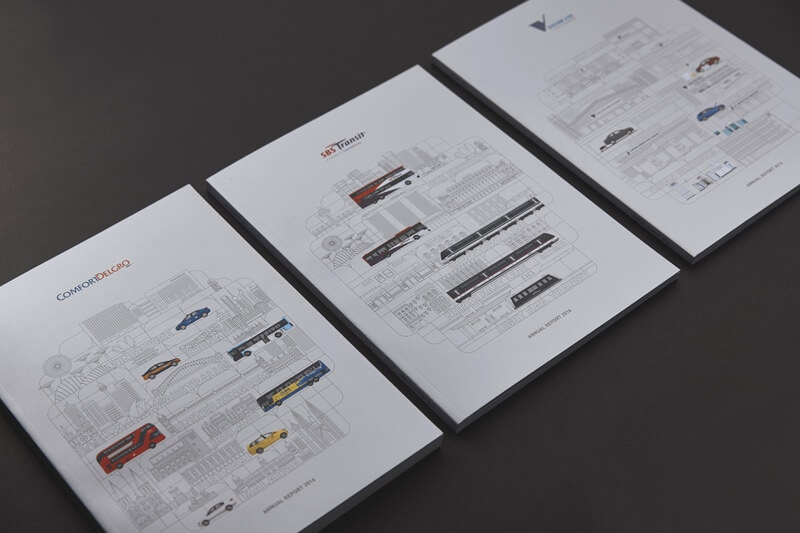
"Got drive, enthusiasm, smarts, integrity, persistence - a team mentality?
That's adorable.
No one will care when A. I. comes for your job. Creativity is your only hope. It's the one thing a robot can't do."
Tom Heehler
Each side of our solid fox-pine* gifting coffer is wood-burned with one of the six pillars of the Clevernomics course. The top is stamped with your personalized message. On the bottom you'll find a special code to be used by the recipient during registration. It comes in a removable burlap cover.
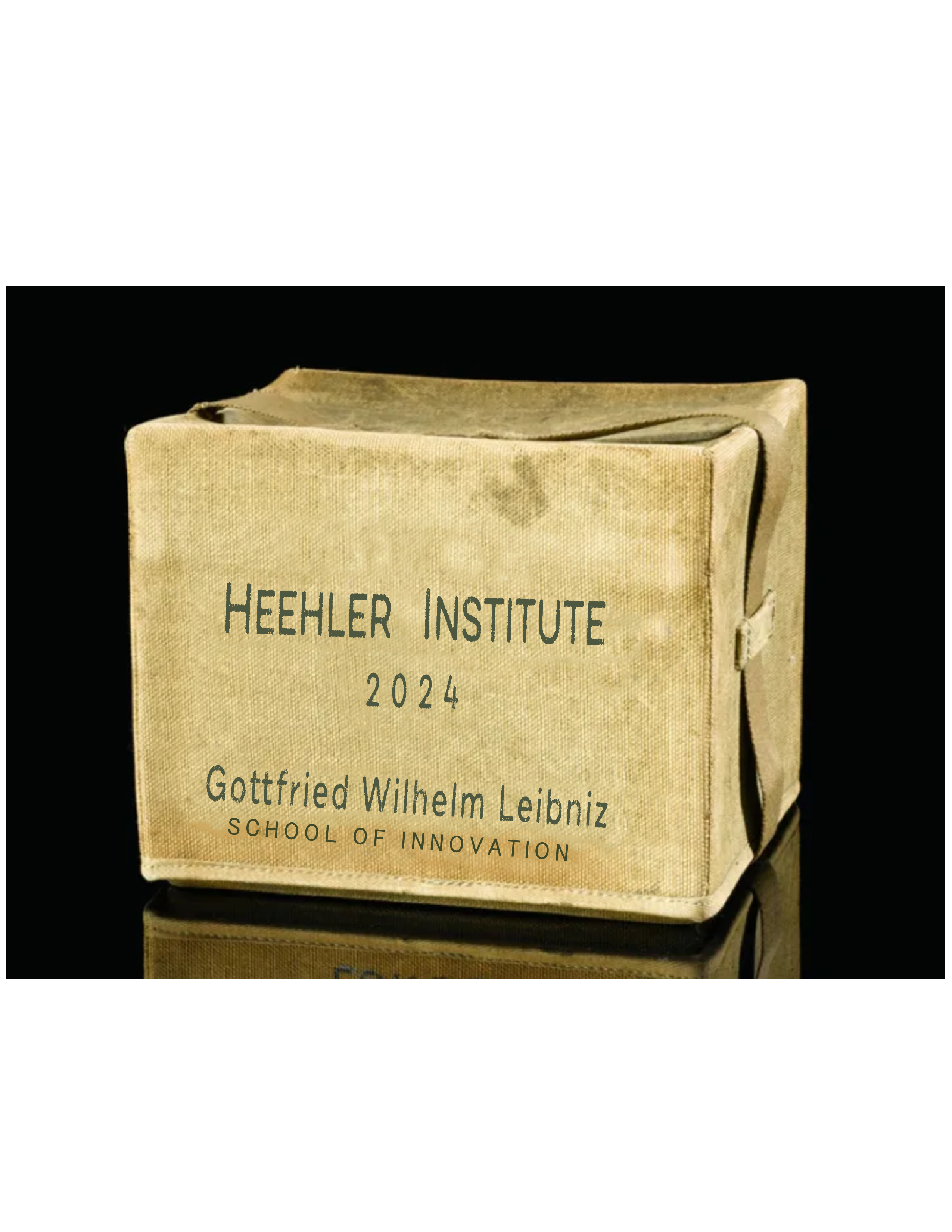
Full Tuition Gifting Coffer $1,350 (4"x5"x4")
Side 1. "Lifetime access to the Andromeda cEngine"
Side 2. "The New Venture Initiative"
Side 3. "The Global Network of Creatives"
Side 4. “Human-Augmented AI”
Side 5. "The GVL Creative License with Choice of 4 Certificates of Insight"
Side 6. "An Unfair Advantage Over Everyone Else"
Should the gifting coffer ever be used as a paperweight, we suggest that it be positioned so as to render the "Unfair Advantage" side clearly visible to anyone who may happen to pass by. (There's no harm in a little trash-signaling.)
Each full-tuition gifting coffer is accompanied by the Clevernomics coursepack - for maximum wow-factor impact.
*Fox-pine are those trees from which certain foxes are known to surveil the countryside, often for wild turkeys or slow children.
(Not to be confused with "Foxtail Pine," which is endangered.)

Full Tuition Gifting Coffer $1,350 (4"x5"x4")
NO CRYING
The date is fast approaching and we’re doing our best in extreme weather conditions.
Register by November 1st, 2024, for the first class in December of 2024 - the "Gray Pack."

There's no better way to give a disadvantaged person an unfair advantage than to teach them how to do Clevernomics (teach them to cycle). Apply today for one of five scholarships offered in 2023. We can't wait to start bragging about how we changed your life, and how you went on to change the lives of countless others.
So there's no pressure.
Why not apply for an interest-free HELP loan? (Higher Education Loan Program) Hit us up now while we're in a good mood. The only requirements are a 700 FICO and a healthy suspicion of authority figures.
GVL reduces tuition by 20% to regular SPCA donors and employees, Harvard Extension School students and faculty, and all Harvard University employees.
Does your job involve the promotion of democracy in America or abroad? If so, we're just aching to give you a Kara-Murza Democracy Grant. Fun fact: Plato wouldn't qualify.
Did your scholarship application essay not move us to tears? Fear not, because there's still hope for some relief. Apply today for a hardship grant administered by the GVL Tuition Assistance Program.
Not ready to dive right in quite yet, but eager to lock in today's tuition rates before Inflation's metaphorical Baby Ruth bar ruins the pool party? Contact Beatriz Rivera at admin@clevernomics.com to sign up today. Dun dun Dun dun Dun dun Dun dun Dun dun Dun dun...

Man with Van Gogh - 2020
Clevernomics began as all creative ideas do, with a simple what-if question: What if you were to reverse-engineer an idea to find out how it had been generated? I considered this to be an important question because, as my theory went, if you could understand how one idea had been created, you should be able to leverage that understanding to create many others.
It would take some effort, but eventually I got quite good at deconstructing ideas. It helps to ponder a thought-experiment: if you could go back in time to the final moments before the idea was had, and assume the inventor is stuck, what question would you whisper in the inventor's ear to provoke the idea?
In the beginning, with every idea I reverse-engineered, a new what-if question would reveal itself as its source, and my catalog of whispered questions grew rapidly.
But as I moved through time in my quest to survey all of history’s greatest ideas, I began to notice that some of the what-if questions responsible for previously cataloged ideas, were showing up again and again as the cause of even more ideas. In fact, by the time I had deconstructed several thousand ideas, there were no longer anymore what-if questions to be discovered.
All subsequent ideas were found to be provoked by previously catalogued questions. Amazingly, the total number of questions had flatlined at 3,406. This is where the total stands today, even after having reverse-engineered hundreds of ideas since.
And so the conclusion is as obvious as it is remarkable: virtually all creative ideas, however complex, whether artistic, whether scientific, whether entrepreneurial, can be generated using one of 3,406 Leibnizian concepts contained within this extraordinary collection.
So what are you waiting for?
C L E V E R N O M I C S
Let the future know you were here.

Man with Van Gogh - 2020
The Clevernomics Gray Pack Debuts December 1st, 2024
This notice is nonbinding. Its purpose is simply to give us a feel for the number of coursepacks we'll need to send out in Noveber of 2024 - just in time for Christmas!
So please, fill out this form only if you're pretty darn sure you'll be taking the plunge. (We're also reducing your tuition by $100 for giving us such early notice)
Once we receive this Notice of Intent, you are no longer subject to any tuition increases that may occur between now and November, 2024.
Full Tuition as of 8/1/22 is $1300.
So when you officially register in October of 2024, we'll only charge you $1200 - just for giving us this early notice now.